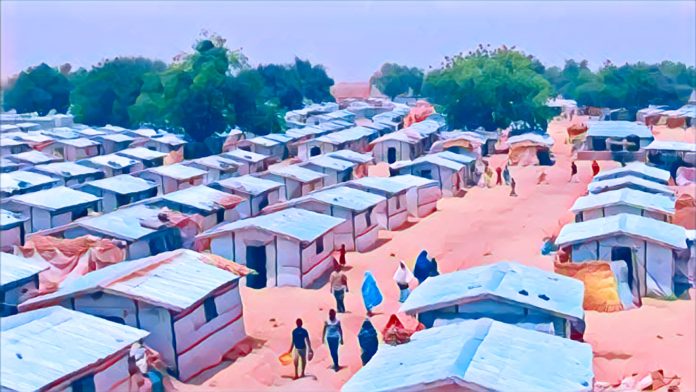Key Points
-
Nigeria leads Africa in durable displacement solutions Nigeria.
-
Durable displacement solutions Nigeria need stronger funding commitments.
-
Durable displacement solutions Nigeria link aid with national planning.
The United Nations has praised Nigeria for what it called “commendable leadership” in helping internally displaced persons (IDPs) and including long-term recovery plans in its national development framework.
The praise came after a group of high-ranking UN officials, such as Ugochi Daniels, the Deputy Director General of the International Organisation for Migration (IOM); Raouf Mazou, the Assistant High Commissioner for Operations at the United Nations High Commissioner for Refugees (UNHCR); and Ahunna Eziakonwa, the Assistant Secretary-General of the United Nations Development Programme (UNDP), visited Abuja and Yobe State together.
The team praised Nigeria for making progress in finding long-term solutions to displacement. Nigeria is using a coordinated national approach that connects short-term help with long-term recovery. Daniels said that Nigeria is “a regional leader in turning displacement from a humanitarian problem into a development opportunity.”
Nigeria puts long-term solutions for displacement first
Governor Mai Mala Buni showed the delegation Yobe State’s Action Plan on Durable Solutions, which is one of the first in the country. It sets aside more than 24% of the state’s annual budget for recovery, rebuilding homes, and bringing people back into the community. The plan is mostly about restoring infrastructure, education, and jobs in areas that have been affected by floods and insurgency.
Mazou from UNHCR said that Nigeria’s 2022 National Policy on Internal Displacement has already had an effect on how things are done in Chad, Niger, and Cameroon. He said, “Nigeria is setting a new standard for how to handle people who have to leave their homes.”
The policy changes the focus from responding to emergencies to building resilience, making sure that families who have been forced to leave their homes can get social protection, skills training, and housing assistance. Dr. Betta Edu leads the Ministry of Humanitarian Affairs and Poverty Alleviation, which has also promised to make the framework a part of all 36 states’ systems by 2026.
Why Nigeria needs long-term solutions for displaced people right now
There are more than 3.2 million people who have been forced to leave their homes in the North-East and parts of the Middle Belt. They need long-term help to get back on their feet. The UN delegation stressed that displacement is now both an economic and social problem that needs data-driven investment and national ownership.
Eziakonwa from UNDP said, “Nigeria’s leadership is very important.” When people are moved around in a local area, things get more stable in the whole region. She said that the approach also helps with economic reintegration and makes countries less reliant on foreign aid.
The partnership shows how humanitarian and development organisations can work together. The Nigerian government is already working on moving IDPs and rebuilding destroyed infrastructure in Borno, Adamawa, and Yobe states. This is being done through the Presidential Committee on Repatriation, Return, and Resettlement, which is led by Vice President Kashim Shettima.
What comes next for Nigeria’s long-term solutions to displacement?
UN officials said that financing is still a weak link, even though things are getting better. They said that communities need ongoing funding to stay stable after they move. Development partners, like the African Development Bank and the European Union, are now expected to help with bigger infrastructure and livelihood projects in areas that have been affected.
The officials also asked the private sector to get involved to help people make a living by providing vocational training and funding for small businesses. There will be a specific plan for helping people who have been displaced in Nigeria’s next National Development Plan (2026–2030). This plan will be based on climate resilience and social inclusion.
Minister Edu told the group, “We need to go from relief to resilience.” All Nigerians who have been forced to leave their homes have the right to rebuild with dignity.
The UN’s recognition puts Nigeria among 15 pilot countries in the Secretary-General’s Action Agenda on Internal Displacement. This is a global effort to encourage solutions that are more localised. If the government keeps going in the same direction, Nigeria could become a model for how to include human mobility in long-term development planning across the continent.
The main point from both Abuja and Geneva is clear: countries that take charge of their own recovery from displacement and make sure it fits with their national growth plans will not only rebuild lives, but also economies.



